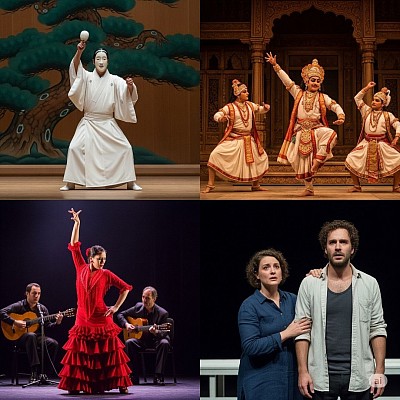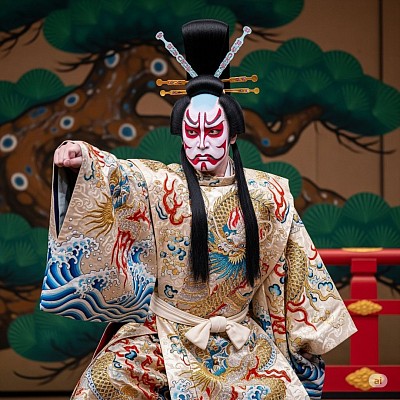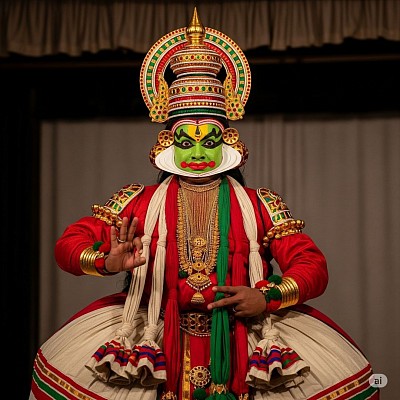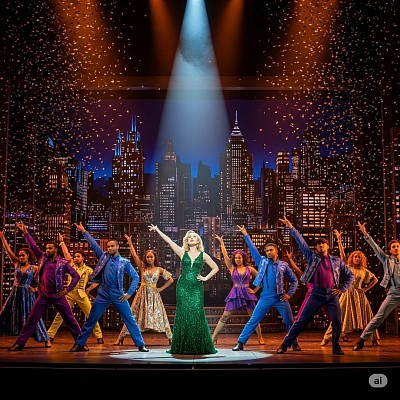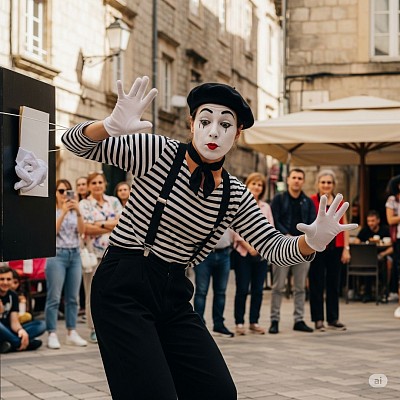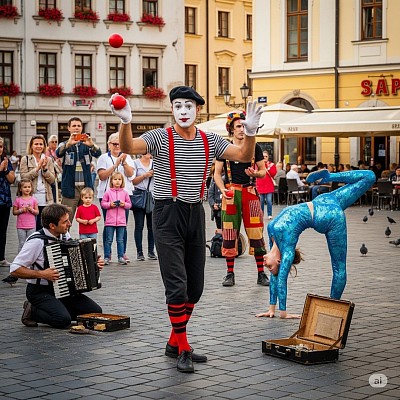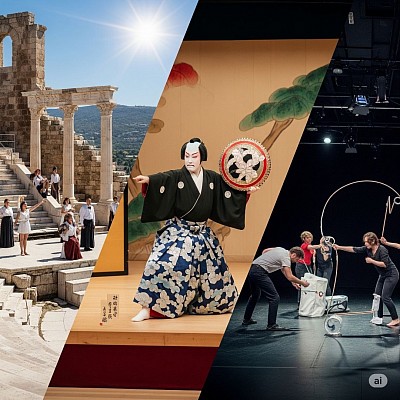A JOURNEY THROUGH GLOBAL THEATRICAL TRADITIONS
🎭 Drama is one of the oldest and most universal forms of storytelling, bringing people together through words, movement, and emotion. From the sacred rituals of ancient temples to the dazzling lights of modern theatres, every culture has shaped its own unique stage traditions. Whether it is the masked intensity of Japanese Noh, the poetic flow of Sanskrit drama, the fiery passion of Spanish Flamenco theatre, or the emotional realism of modern plays, drama reflects the values, struggles, and dreams of humanity. This journey across global stages reveals how acting and performance continue to evolve—yet remain a timeless mirror of society.
1. Classical & Traditional Theater
Greek Tragedy & Comedy (Greece) – Origin of Western drama, with playwrights like Sophocles, Euripides, and Aristophanes. Themes of fate, gods, and human flaws.
Roman Theater (Rome) – Adapted from Greek plays; focused on spectacle, satire, and farce.
Sanskrit Drama (India) – Oldest Indian theater tradition with works like Kalidasa’s Shakuntala, combining music, dance, and poetry.
Noh Theater (Japan) – Minimalistic, highly stylized performance with masks, chanting, and slow movements.
Kabuki (Japan) – Lavish, colorful drama with exaggerated gestures and costumes.
Bunraku (Japan) – Puppet theater narrating epic tales with live chanting and music.
Chinese Opera (China) – Peking Opera and regional variations featuring acrobatics, music, and symbolic makeup.
Wayang Kulit (Shadow Puppetry) (Indonesia) – Storytelling with intricate puppets and live gamelan music.
2. Folk & Ritual Performances
Kathakali (India) – Dance-drama with elaborate makeup, masks, and mythological storytelling.
Yakshagana (India) – Folk theater blending dance, acting, and epic narratives.
Morlam & Likay (Thailand, Laos) – Folk drama mixing comedy, song, and moral lessons.
Commedia dell’Arte (Italy) – Improvised theater with stock characters (Harlequin, Pantalone).
Passion Plays (Europe) – Christian dramatizations of Christ’s suffering, performed during Easter.
Mystery & Morality Plays (Medieval Europe) – Religious dramas teaching moral values.
3. Western Theatre & Modern Drama
Elizabethan Drama (England) – Shakespeare, Marlowe, and others, with themes of power, love, and betrayal.
Restoration Comedy (England) – Witty plays satirizing manners and society.
French Neoclassical Drama (France) – Racine, Corneille, and Molière’s works focusing on structure, reason, and wit.
German Expressionism – Experimental theater with symbolic staging and exaggerated emotions.
Theatre of the Absurd (Europe) – Beckett, Ionesco, exploring existential themes and absurdity of life.
Realism & Naturalism (Russia/Europe) – Chekhov, Ibsen, and Stanislavski focusing on psychological depth.
Musical Theatre (Broadway, USA) – Blend of drama, song, and dance (Phantom of the Opera, Hamilton).
4. Acting Traditions & Performance Styles
Stanislavski System (Russia) – Birth of method acting, focusing on psychological realism.
Method Acting (USA) – Developed from Stanislavski by Strasberg, immersing actors into characters deeply.
Epic Theatre (Germany, Brecht) – Breaking the fourth wall, making audiences think critically.
Improvisational Theatre (Global) – Unscripted performance, audience-driven (e.g., Second City, Chicago).
Physical Theatre (Europe) – Using body movement and mime (influenced by Jacques Lecoq).
Clowning & Mime (France/Italy) – Silent storytelling through expressions and gestures.
5. Contemporary & Popular Drama
Street Theatre (Worldwide) – Drama for public awareness and entertainment.
Political Theatre – Plays addressing social injustice and activism.
Experimental Theatre – Breaking conventional rules of storytelling and stage.
Digital & Virtual Drama – Online plays, immersive AR/VR performances.
Bollywood & Regional Cinema Theatre (India) – Stage-influenced performances blending drama, song, and spectacle.
🌟 From the sacred ritual dramas of Asia to the philosophical tragedies of Greece, the colorful Kabuki to modern experimental theatre, drama reflects the soul of humanity. Acting and storytelling continue to evolve—bridging tradition with innovation across cultures.
Follow Ted-Ed
